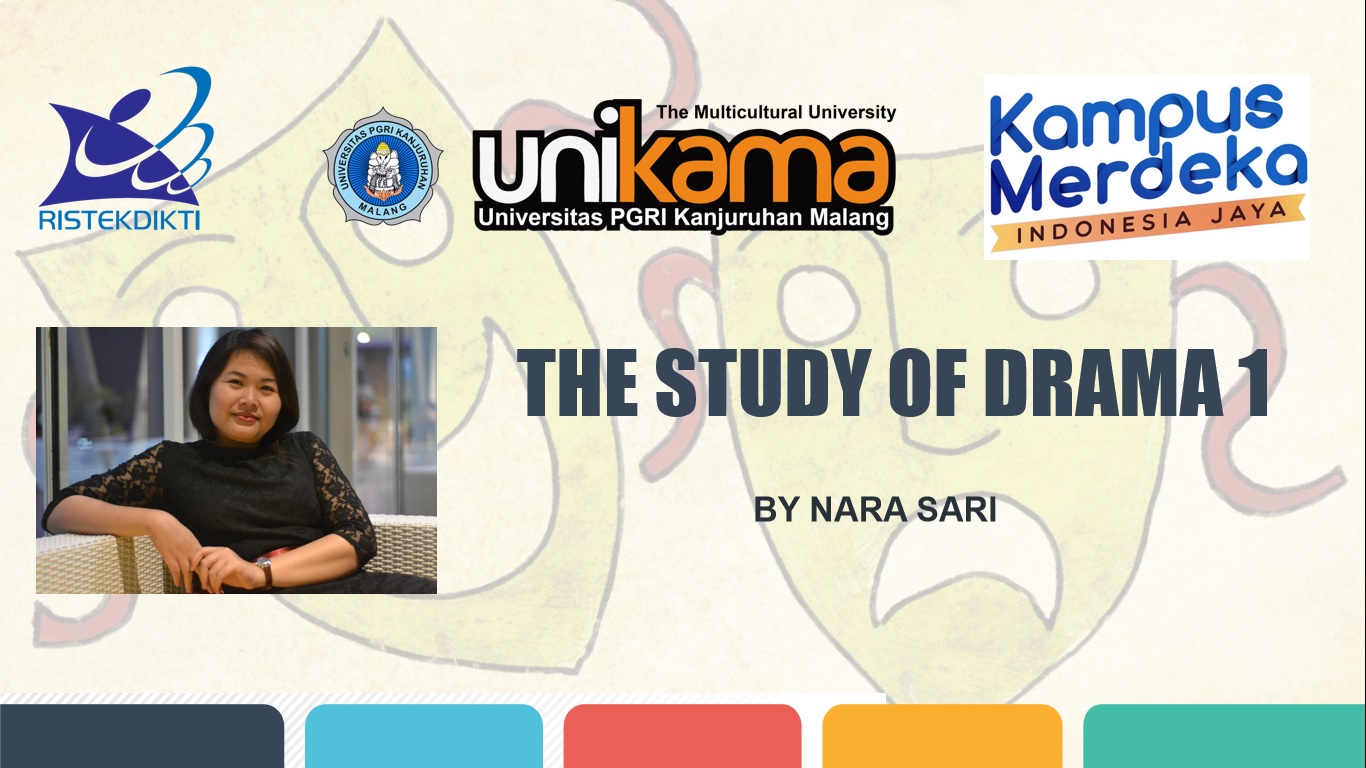General

GREETINGS!
Hello, Students. Welcome to Drama I Class!
Reading and evaluating scripts are as important as performing them on stage. This course aims to help you understand the elements of a play through discovery learning. Through a set of guiding questions provided each meeting, you will be encouraged to build rapport and connect with the playwrights.
By the end of the course, you are expected to be able to connect with the playwrights at an in-depth level and develop a respectful attitude towards an art of work made of words, which is called plays.
You can reach me via email at nara@unikama.ac.id OR send me a whatsapp to 0852-6318-1574
I hope you enjoy this course as I enjoy designing it for you.